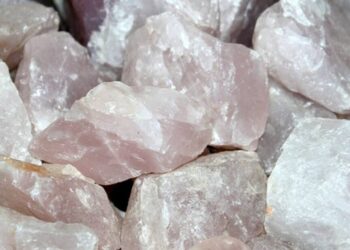In the winter, a shower that is just lukewarm is the worst possible experience. A new water heater should be considered if your current one has let you down (most models have an expected lifespan of 8-12 years). Since the water heater is uncommon, it’s natural to feel apprehensive about it.
Pick a Different Template
Make use of the old device’s data before going shopping. The appliance’s nameplate should list capacity, wattage and voltage, pressure, insulation R-value, and brand and model. Measure the height, breadth, and depth of the area that will house your heater.
When shopping for a new water heater, you’ll find various models from which to choose. Heaters come in a wide range of fuel types, including electric, natural gas, propane, oil, solar, and heat pump, so it’s essential to familiarize yourself with your options. You could also consider getting a tankless heater. Since each potential choice has advantages and disadvantages, it’s in your best interest to do as much research as possible before making a final decision. You should hire a pro to conduct the installation work if you switch fuel types. For instance, laying or removing gas lines is not a job for a novice.
Next, decide if you want to remain with the exact heater type as previously or try something new. Sizing is determined by two factors: the total volume of water it can store and the recovery rate or the volume of water it can heat in one hour. First Hour Rating (FHR) is another name for the recovery rate on the Energy Guide label. A 30- to 40-gallon water heater should be plenty for a two-person household. A 40- to 50-gallon tank is ideal for three to four individuals, while a 50- to 80-gallon tank is preferable for a group of five or more. (Consider the prospect of a growing family throughout the coming years.) Ensure the more prominent model you’re contemplating fits in the designated area!
After you’ve narrowed down your options based on kind and size, you’ll likely be swayed by brand and price; nevertheless, the Energy Star label should not be disregarded. Investing in a more energy-efficient model may cost more upfront, but it will pay for itself for the appliance’s lifetime in reduced energy costs.
Get Rid of the Outdated Water Heater
If you’re working on an electric water heater, the first order of business is to switch off the breaker and lock the box. You should label or otherwise notice the old unit’s wires before disconnecting them. Turn off the gas and similarly remove the inlet valve from a gas unit.
The water heater should be turned off, and all hot water taps should be turned on. Drain the entire tank by attaching a garden hose to the drain valve. First, turn off the unit’s cold water supply and remove it. (Even when empty, they’re still quite hefty and cumbersome.)
Put in the New Device
Putting something in place is a lot like taking it out! Place the new furniture in the room. Solder the pipes back together if necessary, then reconnect the water supply and the hot water drain.
Leave all your hot water faucets open until water starts to flow from each one, which will clear any air from the pipes. Don’t stop them for a whole minute.
The gasoline supply must be reconnected. Before starting the engine, double-check that it has been installed correctly. After an hour, check the water temperature by rerunning the taps to ensure proper heating.
Because it requires knowledge of plumbing and the use of either electricity or gas, installing a water heater can be a daunting process for some. However, if you have the necessary expertise, you may quickly and easily make a new one and get on with your life.
Wood Haven Construction provides comprehensive concrete services, including restoration, modernization, and replacement. A new concrete driveway or an extension of an existing driveway is a famous example of a cement project. Wood Haven Construction has been in the industry of new and renovated buildings for over 25 years. We’re prepared to serve the greater Houston area with unrivaled expertise. Get in touch with Wood Haven Building.
Read also: Unnatural Intelligence, Life and Darwinian Evolution: What Is Life?











